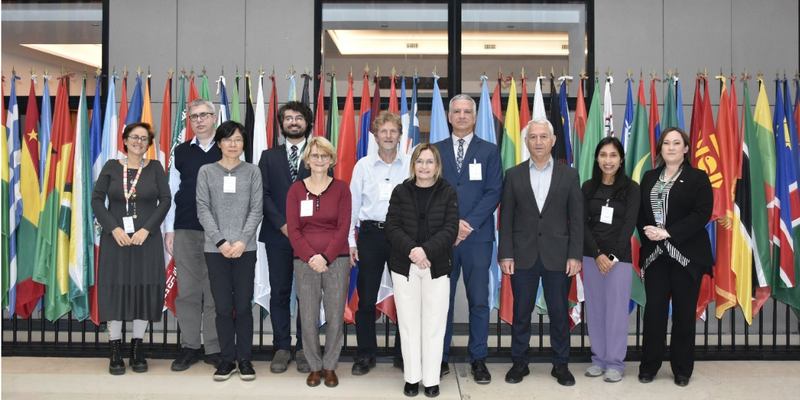Technical Panel for the Glossary Concludes Face-to-Face Meeting in Rome
Posted on Wed, 18 Dec 2024, 09:49

©FAO/ Mariam Almasri - The Technical Panel for the Glossary at the FAO HQ in Rome, Italy
Rome, 28 November 2024. The Technical Panel for the Glossary (TPG) held its annual face-to-face meeting at FAO Headquarters in Rome from 25 to 28 November 2024. The TPG, an integral component of the International Plant Protection Convention (IPPC), ensures the correct use of phytosanitary terminology and consistency in International Standards for Phytosanitary Measures (ISPMs).
During the meeting, TPG members reviewed comments submitted by Contracting Parties (CPs) and Regional Plant Protection Organizations (RPPOs) during the first consultation period (July–September 2024) for seven draft ISPMs, including four draft phytosanitary treatments.
The TPG prepared more than 170 recommendations to ensure the correct use of phytosanitary terminology and consistency in the draft ISPMs, which will now be forwarded to the stewards of each draft ISPM and to the Standards Committee Working Group (SC-7) in May 2025 for consideration. Moreover, the TPG drafted more than 70 recommendations on the appropriate translation of phytosanitary terms. For further details on the draft ISPMs reviewed during the consultation period, visit the Current consultations for draft ISPMs.
During the meeting, TPG members also reviewed and updated the Explanatory Document on ISPM 5, also known as the Annotated Glossary. This key resource provides detailed explanations of glossary terms to support the consistent interpretation and application of ISPMs.
Beatriz Melcho, elected Chairperson for the meeting, emphasized the importance of the Panel’s work “The TPG serves as the foundation for effective phytosanitary collaboration, ensuring that terms and definitions are universally understood and applied. This year’s discussions reaffirmed our shared commitment to the harmonization of phytosanitary terminology and consistency in international standards for phytosanitary measures,” she stated.
A special session with FAO’s Translation Groups explored language-specific challenges, ensuring that terminology in ISPMs remains consistent and accurate across all FAO languages. This collaboration strengthens the multilingual applicability of ISPMs, a cornerstone of effective implementation worldwide.

